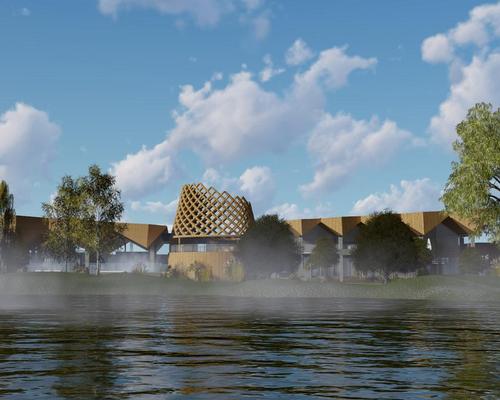11 Sep 2017
Maori culture to feature prominently in New Zealand hot spring project
BY Jane Kitchen

A new NZ$30m (US$22m, €18m, £16.5m) luxury spa and wellness centre in Rotorua, New Zealand, will incorporate Maori culture, with a focus on thermal water and a strong linkage to the tribe.
Due to open in late 2019, the Wai Ariki Hot Springs and Spa will be set on Rotorua’s lakefront and is being developed by Pukeroa Oruawhata Group. The facility will form just one element of the wider health and wellness vision for the group’s 11-hectare site, and will be managed by Australian-based Belgravia Leisure.
“Wai Ariki’s unique features combine with therapeutic mineral waters to deliver a world-class sanctuary that provides a place to relax, sustain and heal,” said Karen Golden, Belgravia general manager of destination, wellness and spa. “The way that culture has been incorporated throughout the concept, design and product offering, combined with its location and people, provides a level of authenticity which we believe makes it unlike anything else in the world.”
Pukeroa Oruawata chair Malcolm Short said Tgati Whakaue, Te Arawa and Maori culture will sit at the heart of Wai Ariki, with the 650-year history of the tribe and Rotorua’s spa heritage forming an intrinsic part of the development.
Wai Ariki means “chiefly waters,” and is a reminder of the origin of Rotorua’s thermal waters. The spa will have elements of Maori culture infused throughout, including the design of the building and its spa and wellness offerings.
“While specific details around Wai Ariki and its offerings remain commercially sensitive, we are confident this development is something which Rotorua, and in fact New Zealand, has never seen before,” said Short. “Our vision for a health and wellness campus at the Rotorua lakefront includes a range of different services and offerings, including dedicated space for a clinical and rehabilitation provider.”
Short said Wai Ariki is set to firmly position Rotorua in the global wellness and spa market, and is about growing the local and national visitor economy.
The brand has been developed by Ngati Whakaue local Inia Maxwell, of Ngati Whakaue and Ngati Rangiwewehi descent, who is known for his work on the global Adidas campaign for the 1999 Rugby World Cup.
“Rotorua is home, so designing this tohu, or identity, for Wai Ariki to share with its visitors has been an absolute privilege and honour,” said Maxwell. “The brand has been designed to be strong and bold, with a touch of elegancy. It was designed to settle into the building without distracting visitors from being welcomed into this spectacular realm.”
The Wai Ariki brand speaks to the cultural narrative of Ngatoroirangi, the great ariki (chief) and tohunga (priest) of the Arawa waka.
Caught in a blizzard climbing Mount Tongariro, Ngatoroirangi called for help from his sisters, Te Pupu and Te Hoata, in Hawaiki to bring precious ahi (fire). It is said the places the subterranean goddesses of fire stopped on their journey, or where they dropped embers, are where the region’s hot pools and other volcanic and geothermal phenomena can be seen today.
Pukeroa Oruawhata trustee Monty Morrison said the cultural authenticity of the spa development has been a critical element, and local Ngati Whakaue representatives have been heavily involved in the concept development.
“We want to respect and acknowledge our tupuna, and ensure the branding, concept and wider development tells the stories of Ngati Whakaue,” said Morrison.
Close Window